How a criminal justice reform effort collapsed in D.C. — with Biden's help
WASHINGTON — Rep. Angie Craig was walking through the lobby of her apartment building in downtown Washington, D.C., when she noticed a man in the midst of a mental health crisis. She walked past him and entered an elevator. The man followed her, proceeding to assault the 51-year old Democratic congresswoman from Minnesota.
Craig fought off her attacker by pouring hot coffee on him. Police officers promptly arrived and arrested the 26-year-old suspect, who had 25 outstanding warrants.
Several days later, Craig became one of 31 Democrats in the House of Representatives to vote against a congressional bill that would allow Washington, D.C. to revise its criminal code, which the district cannot do without approval from Capitol Hill. The revisions were supposed to end mandatory minimum sentences, lower the maximum number of years people can be sentenced for certain crimes and bring back jury trials for suspects in misdemeanor cases.
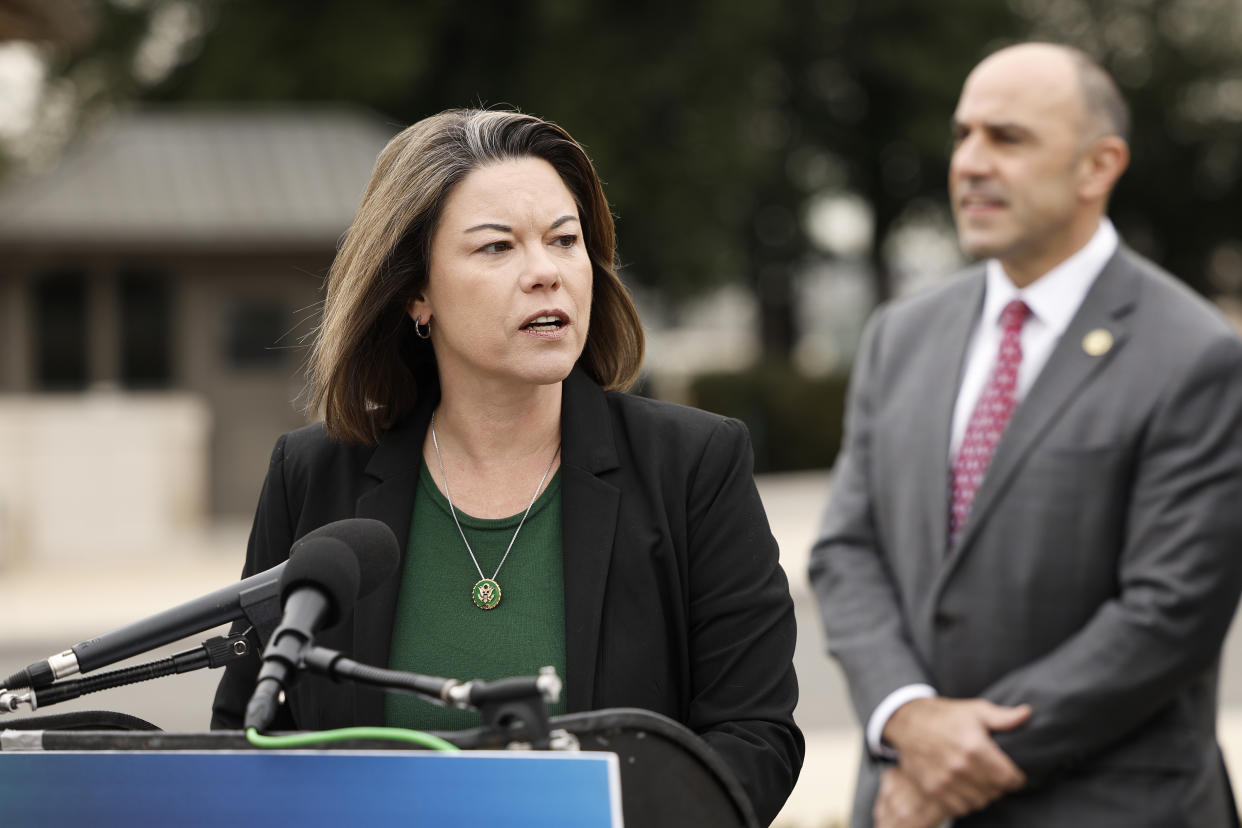
Democrats usually support such policies — but not this time. The defections to the GOP side were an astonishing development at a time of stark partisan divisions on social issues like policing and education.
An even bigger surprise came on Thursday, when President Biden indicated that he would not support the revisions to D.C.’s criminal code, which the Senate is preparing to consider. Democrats there have a narrow majority, but at least one of them — Joe Manchin of West Virginia — had been expected to endorse the Republican proposal blocking the revisions.
Still, criminal justice reformers expected that Biden would veto the congressional measure, allowing D.C.’s revisions to stand.
They discovered they were wrong on Thursday afternoon. Biden first told Democratic Senators during a Capitol Hill luncheon that he would not stand in their way if they wanted to break with the party line and vote with Republicans, The New York Times reported.
Later in the day, Biden made his decision public, writing in a tweet that while he believes in D.C. statehood and home rule, he doesn’t “support some of the changes D.C. Council put forward over the Mayor’s objections — such as lowering penalties for carjackings.”
“If the Senate votes to overturn what D.C. Council did — I’ll sign it,” the president said, reversing his administration’s earlier support.
I support D.C. Statehood and home-rule – but I don’t support some of the changes D.C. Council put forward over the Mayor’s objections – such as lowering penalties for carjackings.
If the Senate votes to overturn what D.C. Council did – I’ll sign it.— President Biden (@POTUS) March 2, 2023
White House press secretary Karine Jean-Pierre said that he also does not support another city council bill, which would allow people who weren't citizens to participate in Washington's elections.
“The decision he’s making is for the people of D.C.,” she said, pointing out that D.C. Mayor Muriel Bowser. doesn’t support the new revisions.
Lawmakers representing Washington were dismayed by Biden’s announcement and his undoing of their efforts. Democrats had betrayed them, some said. "We need their reaffirmation that the more that 600,000 residents who call DC home have a right to local self-governance," councilman Zachary Parker wrote on Twitter.
Others took issue with what they described as a lack of clarity over where the White House stood.
"The White House f***** this up royally,” complained one Democratic lawmaker to The Hill, pointing to a shifting stance that caught many members of both party unawares.
A directive issued last month known as a Statement of Administration Policy indicated White House support for the criminal code revisions. "Congress should respect the District of Columbia’s autonomy to govern its own local affairs," the document said.
On Thursday, the White House defended its about-face.
"He doesn't believe that's going to keep our communities safe," Jean-Pierre said of how the president had come to view the proposed revisions.
Gun violence has jumped by 40% in D.C. since 2017. City officials fear that their efforts at making the district safe are being undone. Many other U.S. cities are suffering the same plight after overseeing historic drops in violent crime in the new century’s first two decades.
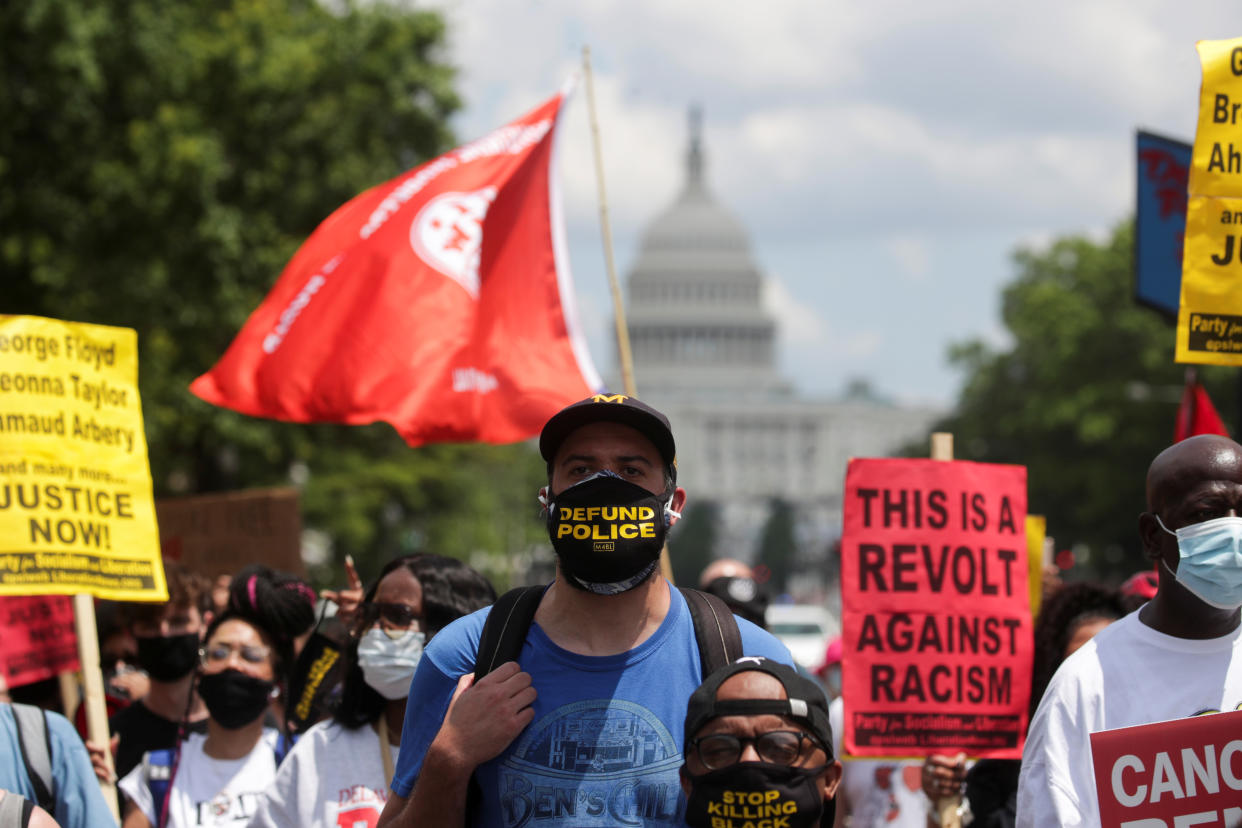
Fears over crime handed Chicago’s incumbent Mayor Lori Lightfoot a resounding defeat in that city’s Democratic primary earlier this week, with pro-police centrist Paul Vallas emerging as the top vote getter.
There are political considerations for Biden, too, especially as he prepares to announce that he will seek a second term in the White House. One of the likely contenders for the Republican presidential nomination is Florida Gov. Ron DeSantis, who recently spoke to law enforcement groups in Democratic states, where he engaged in hard-edged and hyperbolic rhetoric.
Former President Donald Trump, who has already announced that he is running for the presidency, charged last month that “the Biden administration does little to curb crime across the country.” Crime rose during Trump’s term, too, though both in his case and Biden’s, factors well outside presidential control—such as a global pandemic — were partly responsible.
Still, Biden’s announcement that he would not veto the Republican-led effort to block the criminal code revisions could blunt soft-on-crime attacks by DeSantis, Trump and other Republicans.
His decision came as Republicans were in the midst of turning the district’s attempt at criminal justice reform into a national issue, reviving relentless attacks they made in the run-up to the 2022 congressional midterms, with limited success.
This time, GOP legislators cast themselves as sober custodians of a capital city given over to dangerous progressive ideas on public safety.
“To a unique degree, unlike any other city in America, Washington D.C., issues are national issues. The District of Columbia doesn’t belong to a handful of local politicians, it belongs to more than 330 million American citizens,” Mitch McConnell of Kentucky, the Republican leader in the Senate, said at a hearing earlier this week.
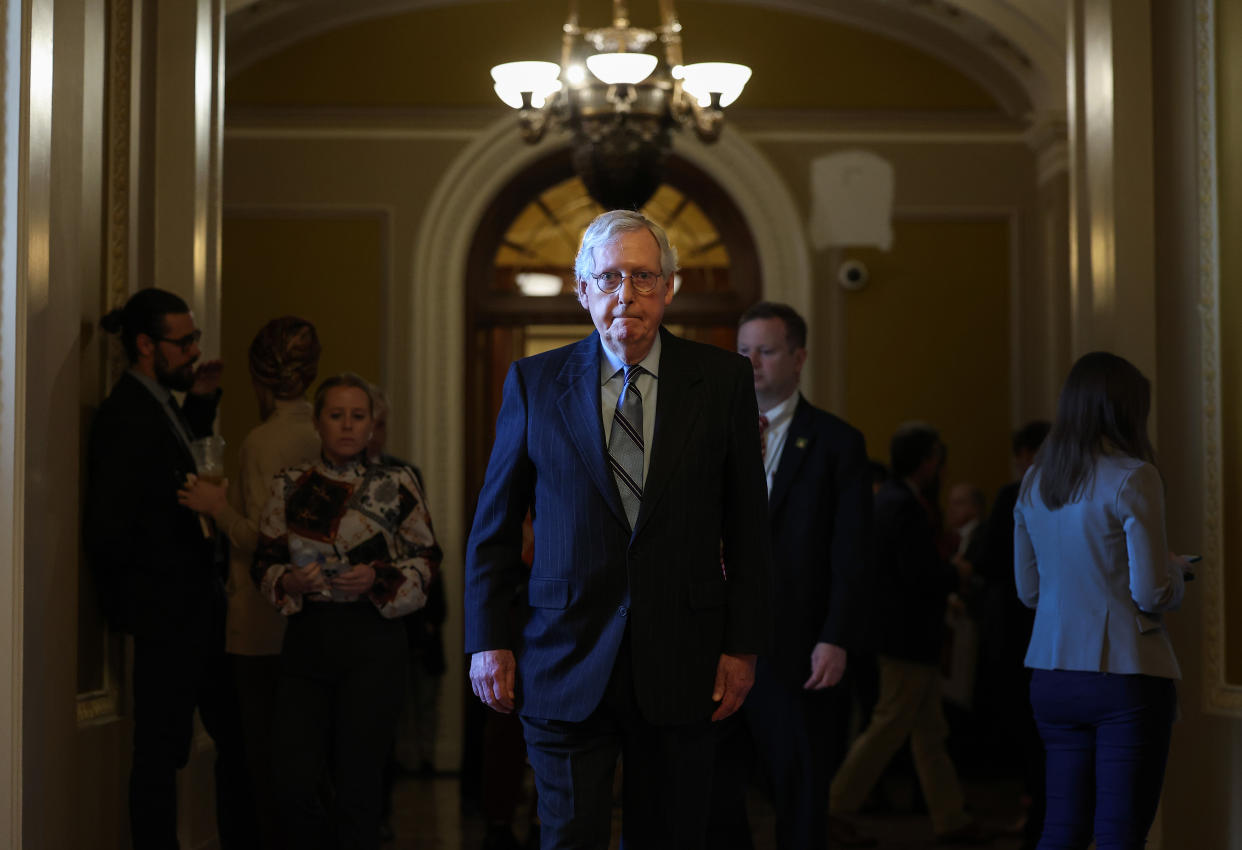
“The people need their government to function in safety,” McConnell continued. “Families and school groups need to be able to come tour their own capital, which their own tax dollars help finance, in peace of body and peace of mind.”
They perhaps did not expect Biden to side with them. By doing so, he harkened back to his image as the law-and-order senator who helped pass the 1994 crime bill. He has since embraced criminal justice reform.
Yet not even a president is free of constraining political realities — his own, of course, but also those of the legislators who often have to answer for his choices in their own election campaigns, on which 23 Senate Democrats are about to embark, along with the entire House.
Democrats control the Senate, but only narrowly. The measure introduced by Sen. Bill Hagerty, R-Tenn., last month would undo the criminal code revisions that the House had already rejected. Because of how Hagerty introduced his proposal, it required only a simple majority to pass.
Manchin’s support greatly bolstered the bill’s prospects. “I think a number of Democrats are looking at this very hard,” Hagerty told reporters earlier this week. Now that Biden has taken the danger of a veto off the table, other moderate Democrats are all but certain to join Manchin on the GOP side.

Biden signing the measure would put an end to a protracted and involved effort at criminal justice reform that Washington undertook in 2006.
If crime is a complex issue to begin with, it is especially so in the District of Columbia. Here, local and federal jurisdiction intersect and clash in ways that have no analog elsewhere in the country. In most cases, state and local governments make most decisions about how police departments and courts operate.
According to the Constitution, Congress exercises final say over all District of Columbia legislation. Today, many see that stipulation as nothing more than a racist vestige, rooted in the fear of giving home rule to what was, until very recently, a majority Black city.
Democrats support making Washington the nation’s 51st state — and, as a rule, never meddle in the district’s own affairs. Last month’s House vote reflected persistent anxiety that public safety remains a political vulnerability, transcending even long-held party principles.
“I think we ought to be looking at ways to make the world safer for our constituents, not less safe,” Rep. Mike Thompson of California recently told The New York Times. He was one of the 31 Democrats who voted in the House against the criminal code updates.
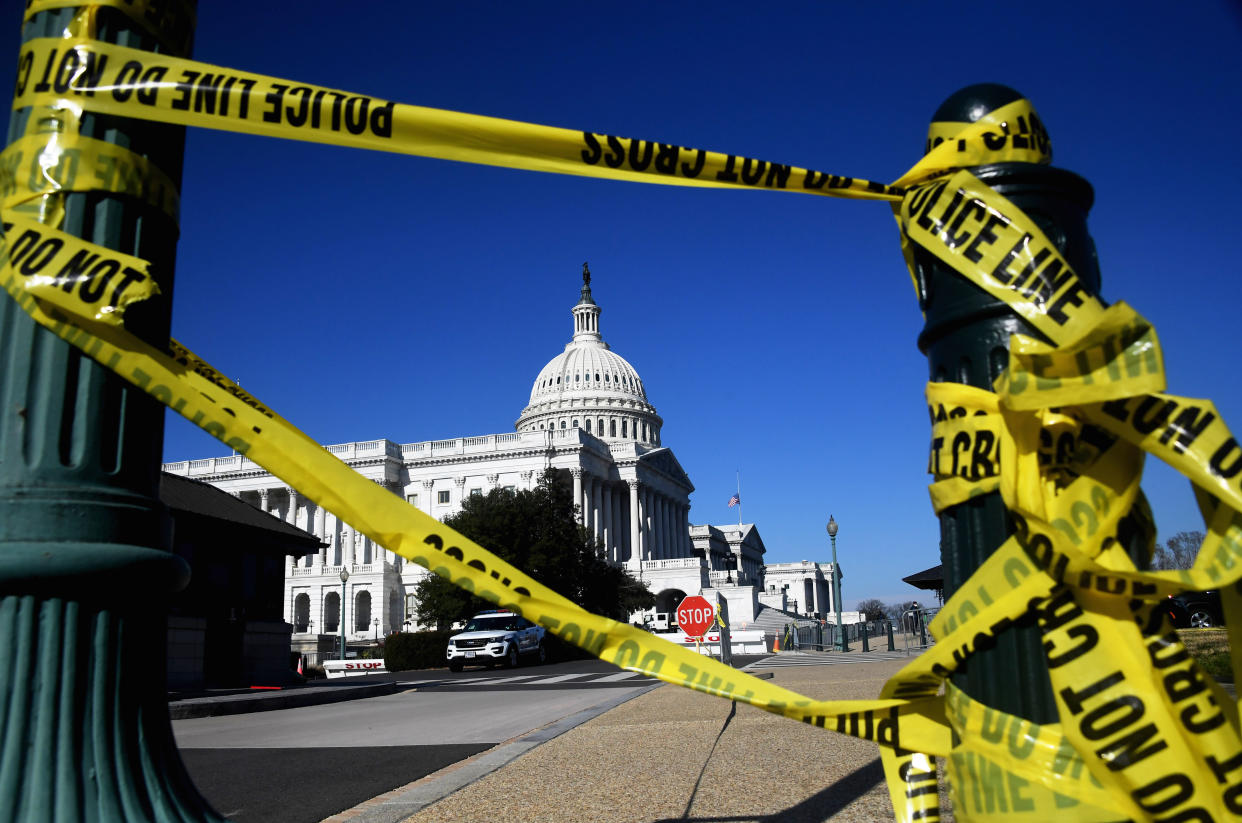
The revisions to the crime bill stem from vagaries and inconsistencies in the district’s criminal code, which dates back to 1901. The revisions now under Senate consideration — formally known as the Revised Criminal Code Act — originate in a 1962 document meant to modernize criminal justice statutes known as the Model Penal Code.
Its recommendations have been adapted by 29 states.
The D.C. revisions tried to embrace the closely related imperatives of equity and clarity. Mandatory minimum sentencing policies tend to result in longer sentences for Black defendants.
But above all, say those who worked on the revisions, there was a need to prune and weed a legal code now more than a century old. “It is going to significantly increase the accessibility and the clarity of the code,” explained Jinwoo Park, who headed the commission tasked with revising the code.
For example, the bill reduced the maximum sentence for robbery from 45 years to 20.
This could be — and has been — seen as a sign of newfound and perhaps misguided leniency, especially at a time when property crime is rising in Washington. But judges in the District of Columbia were handing out a maximum sentence of 18 years for robbery, meaning that even the downward revision of the code would remain more harsh (if to a much lesser extent) than the punishment actually meted out in the district’s courts.

The revisions were meant to ensure that “each offense is defined so that courts, prosecutors, and defendants know what is (and what isn’t) criminal conduct,” legal analyst Mark Joseph Stern of Slate wrote in his extensive examination of the proposed changes.
Critics seized on a suggested change to sentencing for carjacking, a crime that has plagued Washington and other major cities. If the revisions were to pass, the maximum sentence for carjacking would drop from 40 years to 24.
Supporters of the revised bill pointed to the fact that most people convicted of carjacking in the District of Columbia went to prison for 15 years, meaning that — as with robbery — the criminal code would not actually lead to lesser penalties.
But as U.S. Attorney Matthew Graves argued in an October letter to the city council, sentencing guidelines also have a symbolic value, indicating to prosecutors, judges and juries how seriously society takes certain crimes.
“A statutory maximum does not represent the community’s and legislature’s sense of what the minimum amount, or even average amount, of punishment for a crime should entail,” Graves wrote.
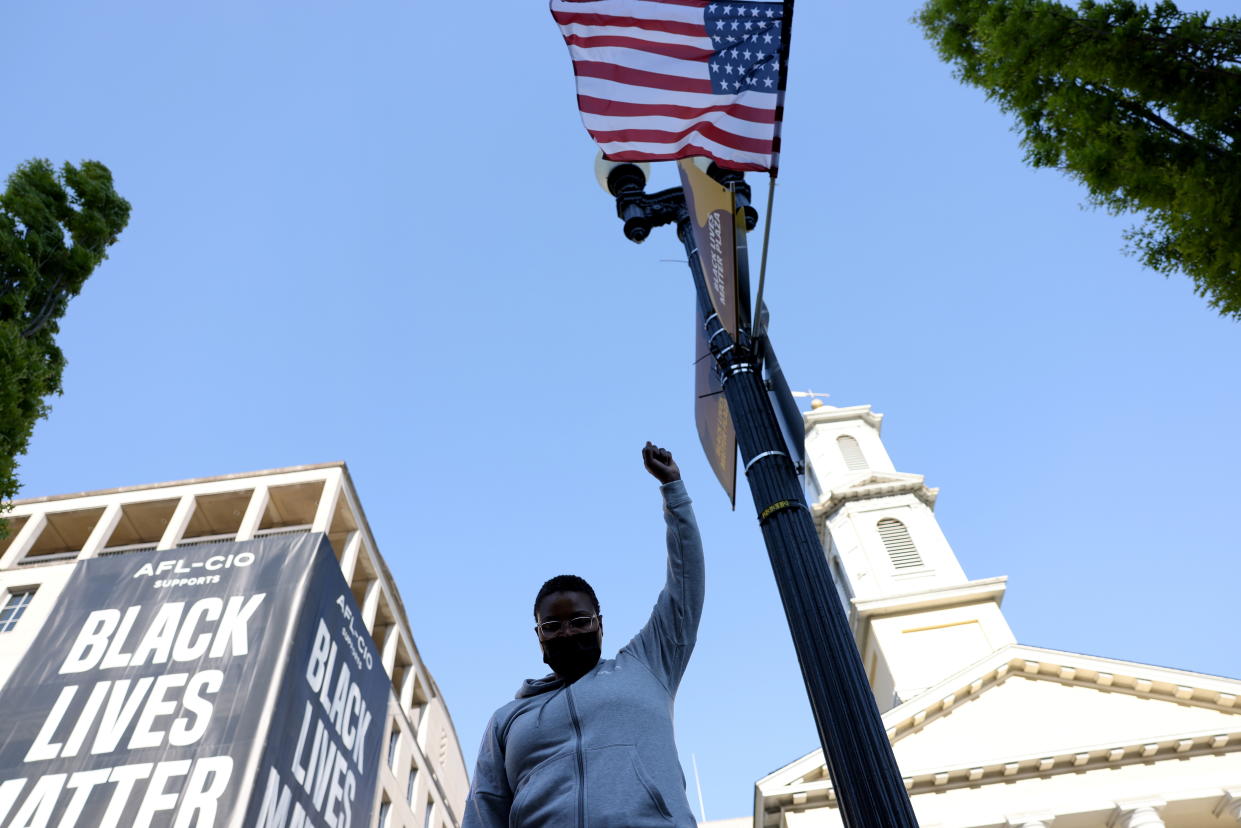
“Rather,” he continued, “a statutory maximum — by definition — reflects the community’s and legislature's belief as to what the sentence should be for committing the worst possible version of that offense, including when the person has a substantial criminal history. Crimes that are not the worst possible version of the offense or that are committed by individuals who lack a significant criminal history may be sentenced below the statutory maximum.”
Graves also took issue with a proposed revision that, if implemented, would allow most suspects in misdemeanor crimes to have a jury trial — a right guaranteed by the Sixth Amendment but done away with in the district after passage of 1994’s Misdemeanor Streamlining Act, which was intended to allow judges to focus on more serious cases.
Suspects convicted of their crimes could receive a maximum sentence of 180 days in jail. A rollback of the 1994 law, Graves wrote, “cannot be executed in this jurisdiction in a way that does not greatly increase the time between when a crime is charged and when a trial occurs.” The well-intentioned attempt to broaden access to courts would, he argued, make the courts inoperable.
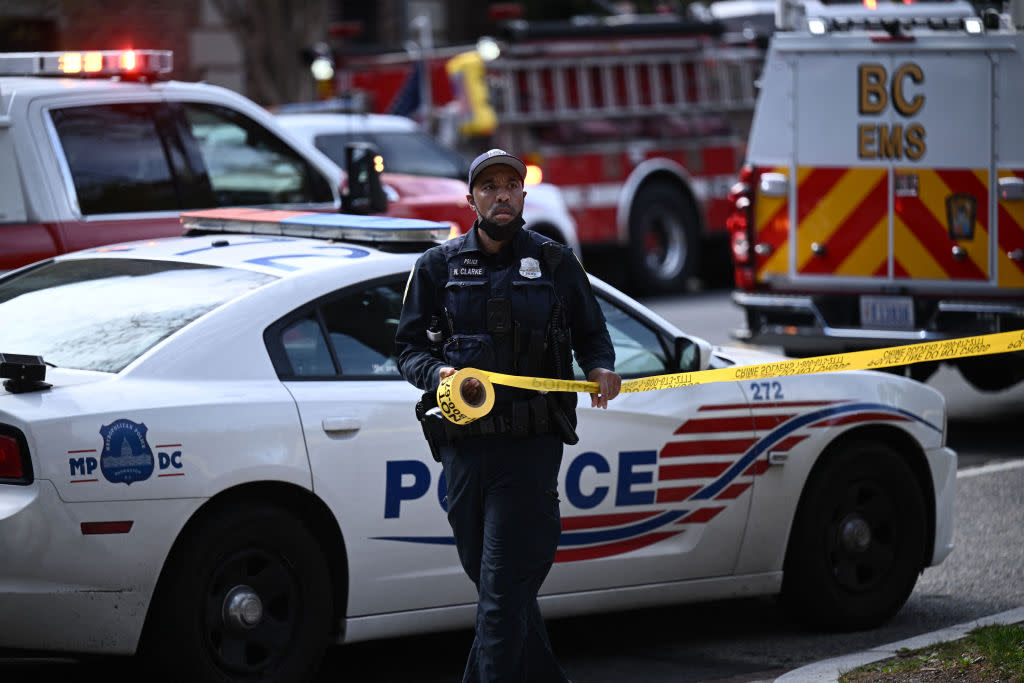
Supporters of the revisions pointed out that the new code would not be implemented until late 2025, giving the district’s various criminal justice institutions plenty of time to prepare. They also lamented the seemingly intentional conflation of the revisions with progressive priorities that have nothing to do with their own work.
“There wasn't a mandate to decarcerate en masse. There wasn’t a mandate to write something that was perfectly racially equitable,” said Patrice Sulton of the DC Justice Lab, speaking at the same symposium as Park. “This was really about the logic, the functionality, and the overall fairness of the code from the perspective of as many stakeholders as possible.”
Fox News predictably lambasted the revisions, but so did the Washington Post, which warned in an editorial that “Washington could become a more dangerous city” if the revisions passed.
The City Council did not heed such warnings and unanimously passed the revisions in November. Bowser vetoed the revisions, but the council overrode her veto, this time with a single dissenting vote.
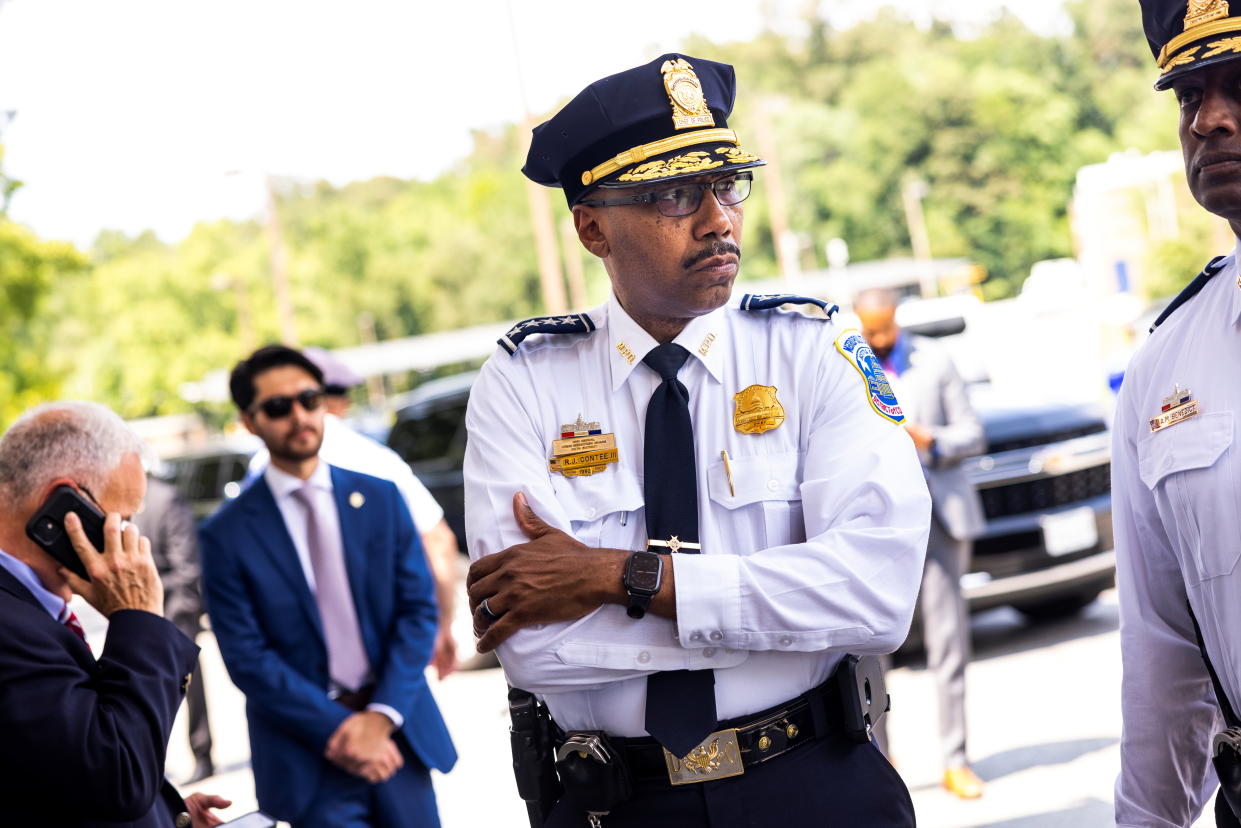
Then the controversy to Congress, where it erupted into a national issue. But with Biden coming out in favor of the measure, it will likely lose the political potency Republicans had found useful in recent weeks.
Meanwhile, crime continues to surge throughout the district, flummoxing criminologists, terrifying residents and presenting criminal justice advocates with a conundrum that, thus far, has been difficult to resolve.
“There is no magic formula, no valid unifying theory of crime,” a seemingly exasperated Robert J. Contee III, told the City Council in virtual testimony late last month.
The following weekend, five people were killed in Washington.
